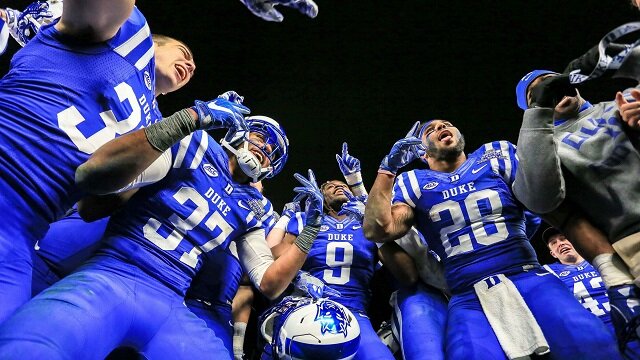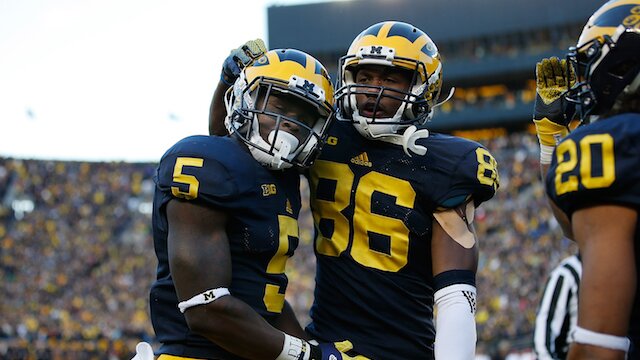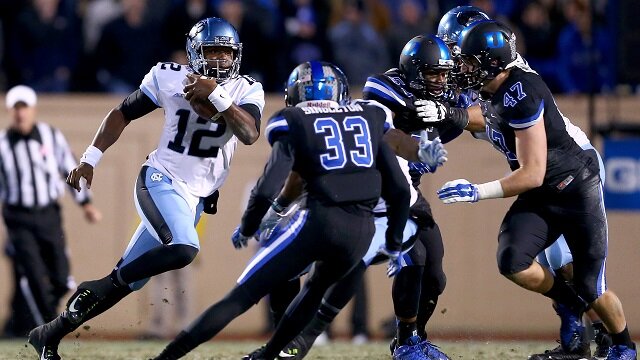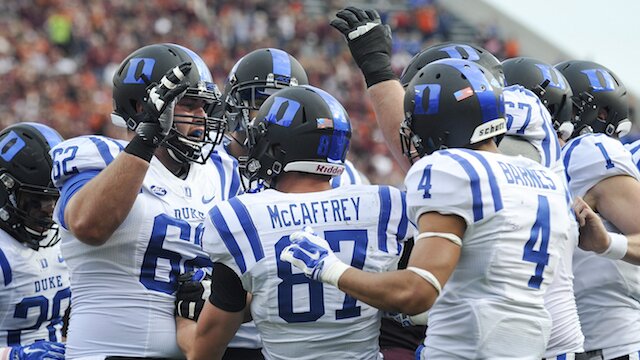
Saturday’s Pinstripe Bowl between Indiana and Duke was one of the best bowl games thus far this college football season. It had everything that fans look for in a great college game — a well-matched set of teams, a nail-biting finish, and most of all, controversy. Both teams have not exactly been bowl-game regulars. Duke hasn’t won a bowl game since 1961, and Indiana hasn’t even been to a bowl game since 2007. This was a game of two traditional underdogs and wouldn’t have even made headlines had it not been for a controversial OT missed kick by Indiana.
The game meant a great deal to both teams. For Duke, it meant that they snapped a five-game bowl losing streak and clinched their first bowl win in over 50 years. For Indiana, just getting to a bowl game was well-nigh miraculous, as the Hoosiers are not a traditional football powerhouse. This bowl game was only the second postseason game for the Hoosiers since 1993. The game ultimately came down to special teams, as the two teams combined only had 1,203 total offensive yards and 55 first downs.
There were six turnovers, so this game was dramatic from the start. The wild finish, in which Indiana kicker Griffin Oakes attempted a 55-yard kick and missed, gave Duke the win. The problem is, was the kick actually a miss? The kick couldn’t be reviewed because the replay rule bars review of missed kicks. Oakes’ attempt went over the uprights and the refs made a judgment call. Since the kick was not reviewable, the game ended on a sour note for the Hoosiers.
Error is a large part of the charm of college football. The officials, coaches and players are human and thus prone to human error. That is why review exists. Utilizing the review too much would drag games out ad infinitum to the point of absurdity. Yet what this controversial final play emphasizes is the problems with the review system. There is no feasible solution, but games like Saturday’s Pinstripe Bowl accentuate the need for a review of the review.
 Share
Share 










